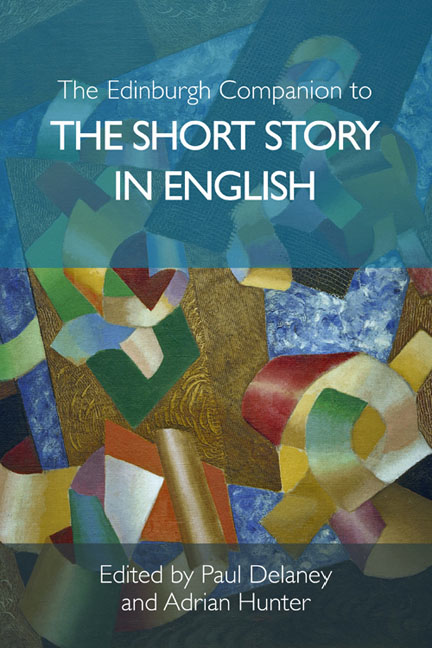Book contents
- Frontmatter
- Contents
- Acknowledgements
- Notes on Contributors
- Introduction
- Part I Historicising the Short Story
- Part II Publishing the Short Story
- Part III Forms of the Short Story
- 9 Short-Short Fiction
- 10 The Weird Tale
- 11 The Horror Story
- 12 Experimental Short Stories
- 13 The War Story
- Part IV Placing the Short Story
- Part V Identity and the Short Story
- Index of Short Story Titles
- General Index
11 - The Horror Story
from Part III - Forms of the Short Story
Published online by Cambridge University Press: 18 December 2019
- Frontmatter
- Contents
- Acknowledgements
- Notes on Contributors
- Introduction
- Part I Historicising the Short Story
- Part II Publishing the Short Story
- Part III Forms of the Short Story
- 9 Short-Short Fiction
- 10 The Weird Tale
- 11 The Horror Story
- 12 Experimental Short Stories
- 13 The War Story
- Part IV Placing the Short Story
- Part V Identity and the Short Story
- Index of Short Story Titles
- General Index
Summary
THE HORROR STORY IS one of the enduring genres of short fiction. With its characteristic reliance on the unity of time and effect, and on the creation of an unsettling mood or atmosphere leading to a shocking denouement, horror has proved particularly amenable to the short form, deliberately designed to be consumed in one sitting for maximum impact. A number of the greatest horror writers – Edgar Allan Poe, Ambrose Bierce, M. R. James, H. P. Lovecraft, Robert Aickman – worked almost exclusively in the short story form, while others – Nathaniel Hawthorne, Sheridan Le Fanu, Arthur Conan Doyle, Shirley Jackson, Stephen King, Clive Barker – made important contributions in long and short fiction. It is also a genre of important anthologies, which have collected the enduring moments of otherwise minor or neglected writers: William Maginn, Amelia B. Edwards, Fitz-James O'Brien, Rhoda Broughton, W. W. Jacobs, Oscar Cook and numerous others have made unforgettable appearances in a variety of anthologies of horror and the supernatural.
In his fiction and his poetry, Poe built a whole aesthetic around this intensity of effect:
Nothing is more clear than that every plot, worth the name, must be elaborated to its dénouement before anything be attempted with the pen. It is only with the dénouement constantly in view that we can give the plot its indispensable air of consequence, or causation, by making the incidents, and especially the tone at all points, tend to the development of the intention … If any literary work is too long to be read in some sitting, we must be content to dispense with the immensely important effect derivable from unity of impression – for, if two sittings be required, the affairs of the world interfere, and everything like totality is at once destroyed.
In Poe's work, at least, literary theory anticipates and governs the practice of writing, always and at all points subordinated to a priori aesthetic concerns. Horror was for Poe the most suitable mode for achieving his aesthetic goals. Poe's position is a typically extreme one, yet many of his aims and concerns have been shared by other writers of horror fiction.
- Type
- Chapter
- Information
- The Edinburgh Companion to the Short Story in English , pp. 175 - 192Publisher: Edinburgh University PressPrint publication year: 2018



